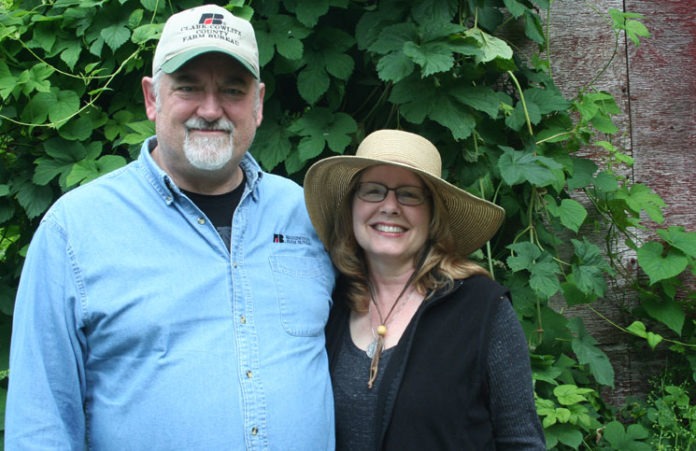VBJ: How are you serving your customers right now? How does that look different from last year?
Anne Lawrence: Our farm subscription sales take place far in advance of harvest; that process hasn’t changed. However, demand is way up, and membership is growing. One big difference between last year and this year is that, in anticipation of greater demand, we are planting more than in previous years.
This year, we noticed an early increase in interest and memberships from folks new to the CSA concept, and that’s been very encouraging. So, the greenhouse is full of seedlings, and more veggies are already in the ground than this time last year. We planted almost twice as many potatoes than in past seasons. And this year, all of the seed potatoes we planted were from our 2019 summer harvest.
We chose to purchase some of our heirloom vegetable seedlings this year from a couple of wonderful local high school horticulture programs whose seedling sales have been negatively impacted by policies around social distancing. These students work very hard and depend upon their greenhouse plant sales to help fund their programs, so we feel fortunate to have been able to purchase from those wonderful horticulture programs.
VBJ: I have heard CSAs are doing well this year in general. Is that your experience?
Lawrence: Yes, absolutely. Eaters are looking for clean, healthful, super-fresh produce, and that’s just one reason CSA appeals to folks. People are very aware that buying directly from your farmer assures eaters that very few hands have touched their food. It has been my experience that demand for locally-produced food has increased tremendously this year. Folks want to be able to trust that the food on their fork is clean, healthful, and nutritionally sound as well as hyper-fresh.
VBJ: How are you dealing with social distancing?
Lawrence: When our harvest season begins, we will follow whatever social distancing requirements are in effect at that time. For now, we’re a family operation and we live here together. We are careful to wear masks while in public and we’re masters at hand washing.
VBJ: What else should we know about the way this is affecting small farms like Storytree?
Lawrence: For us, the increase in public awareness about health and food security and the resulting enthusiasm of local people in purchasing fresh produce from neighborhood farms has been immensely gratifying.
Food security necessitates the continued availability of local and regionally grown food. In order for farms to thrive, and for fresh produce to continue to be available, we must choose wisely where we spend our food dollar.
The bigger picture for agriculture across Washington and the USA secondary to the pandemic is terrifying. Almost across the board, farms have suffered catastrophic losses. Add to that the cost and availability of labor in the USA and the unfair competition from cheap foreign sources whose farms are not required to take care of their workers, and the picture is grim.
My earnest request of anyone reading this is to please make fully informed and very careful decisions when spending your food dollar. If enough people demand USA-grown food, farms will keep growing to supply that demand.




